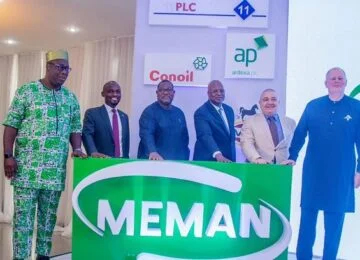….by Ben Ndubuwa…
The volume of gasoline imports into Nigeria has significantly declined in recent months, owing to increased local production from the newly operational Dangote Refinery, however a balanced, market-driven approach is essential for sustainable economic growth.
James Gooder, VP, Crude Oil, Argus Media while analyzing Trade flows during quarterly media training titled “Refinery Operations and Trade Flows” for energy correspondents by Major Energy Marketers Association of Nigeria (MEMAN) in Lagos, Gooder said gasoline flows into West Africa have remained relatively steady, but Nigeria’s share of these imports has been shrinking. He attributes this trend to rising domestic supply and the ongoing deregulation of fuel pricing in the country.
Explaining the analysis published on the Argus Direct platform, Gooder said that the import decline marks a shift in Nigeria’s fuel supply dynamics. Previously, large volumes of imported gasoline were smuggled into neighboring countries due to pricing disparities. ‘’However, with deregulation aligning Nigerian fuel prices with regional markets, smuggling incentives have diminished.
“Now that we have a real market in Nigeria, pricing is becoming fairer and more transparent,” Gooder noted during his presentation.
The Dangote Refinery, which recently commenced operations, has started supplying premium motor spirit (PMS) and other petroleum products, reducing Nigeria’s reliance on foreign imports. According to prediction increased local production would lead to lower fuel prices, and early indicators suggest a downward trend.
Gooder pointed out that gasoline shipments from Northwest Europe, Nigeria’s primary supplier, have also declined. In contrast, fuel exports from the region to the United States continue to follow a seasonal pattern, rising in summer and falling in winter due to fluctuations in demand.
The transformation in Nigeria’s fuel import structure marks a turning point in the country’s energy sector. Gooder foresee long-term benefits for local consumers and the economy, including increased energy security and job creation.
Meanwhile the Executive Secretary of MEMAN, Clement Isong in his opening remarks at the training said that in the broader economic landscape, the debate over local production versus imports remains a key issue. Isong argued that efficiency and adaptability are crucial in navigating this dynamic environment.
The Executive Secretary of MEMAN emphasized that market forces should play a central role in determining the balance between local production and imports. “Business processes constantly shift between centralization and efficiency. The key is to recognize these swings and adapt accordingly,” Isong stated.
He explained that economic progress is not a straight-line process but rather a continuous movement toward an optimal balance. “If you close your borders to imports entirely, it can be detrimental. At the same time, failing to produce locally means losing out on opportunities for growth and self-sufficiency,” he added.
Isong advocated for a “win-win” scenario where local businesses maximize production for both domestic consumption and export, while also allowing imports to complement the market. “Ultimately, efficiency benefits everyone. If a business is inefficient and cannot compete globally, it risks collapse. And when local manufacturing fails, who suffers the most? The people” he insisted.
He further stressed that economic policies should prioritize the well-being of the people. “We want local refining, but we also want access to global markets. Who says we can’t have both?”
As Nigeria continues to adjust its fuel supply and economic policies, the debate over local production and imports is expected to persist. However, one thing remains clear: a balanced, market-driven approach is essential for sustainable economic growth.
 Financial Energy Review
Financial Energy Review





